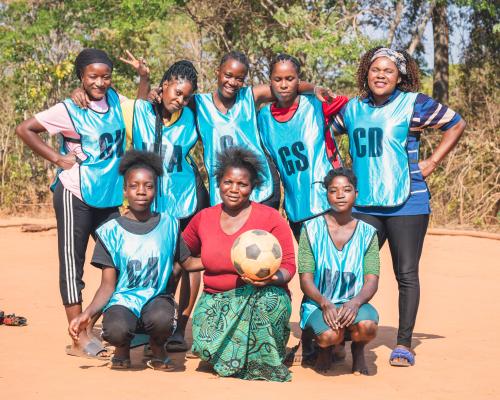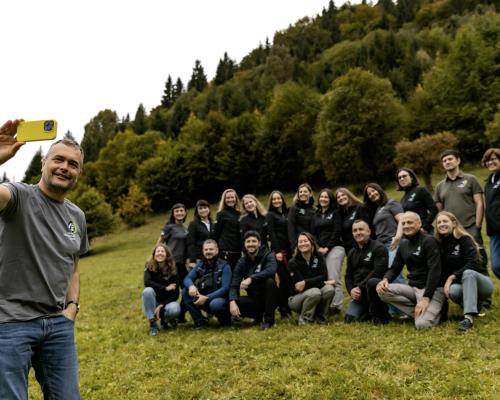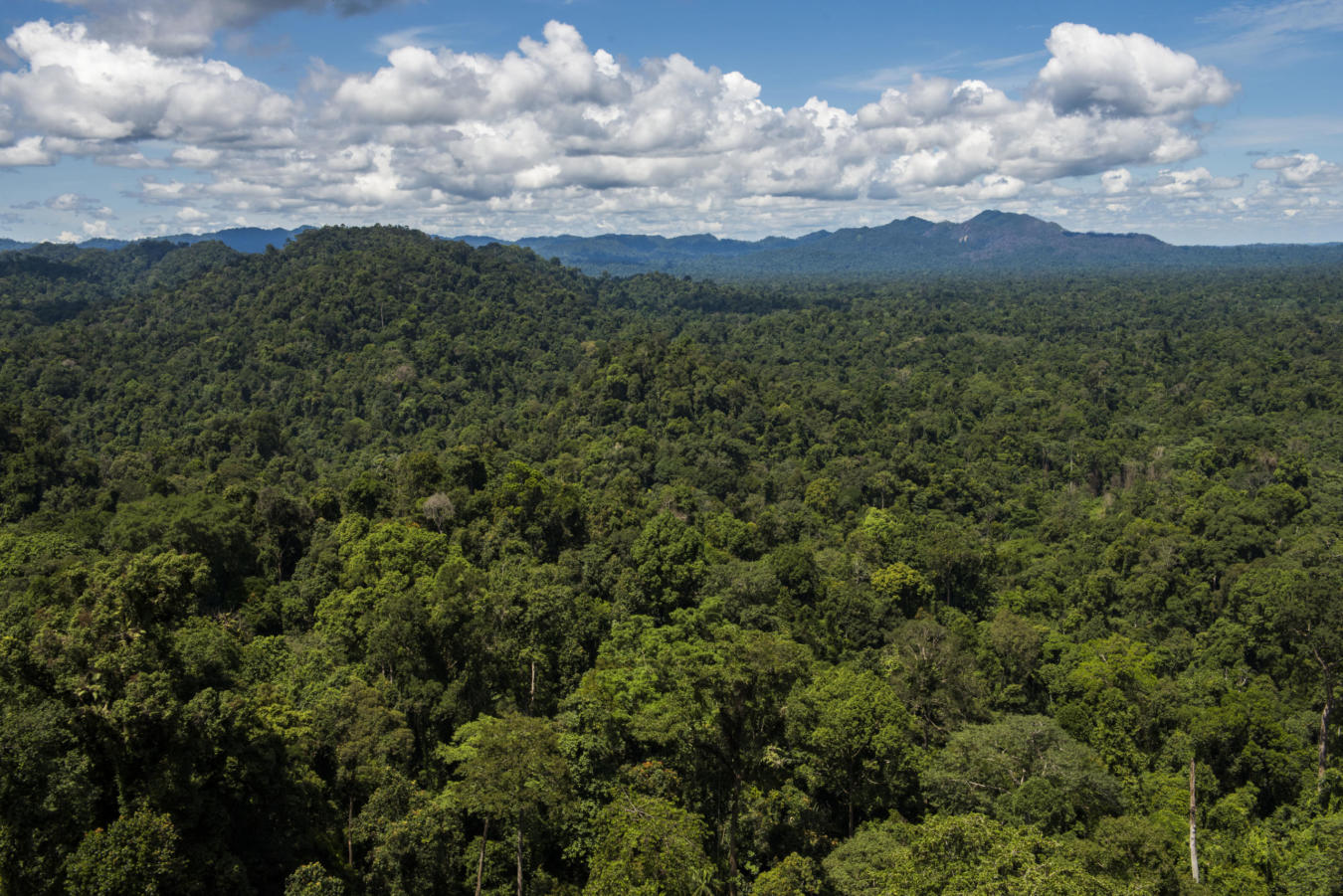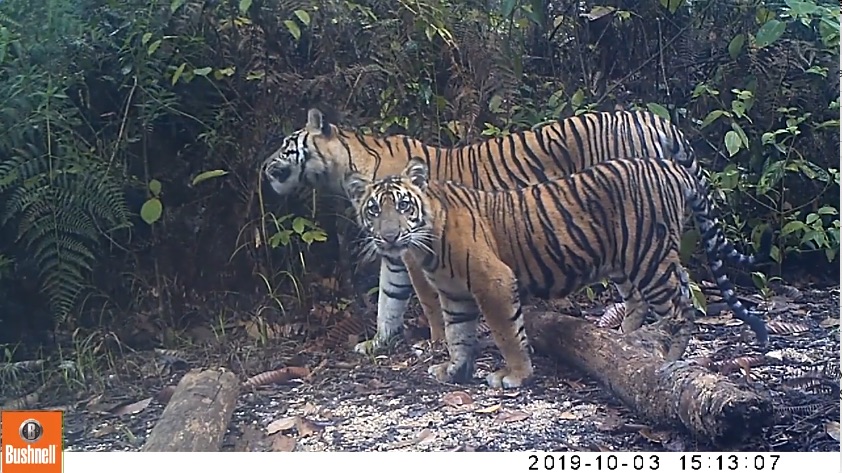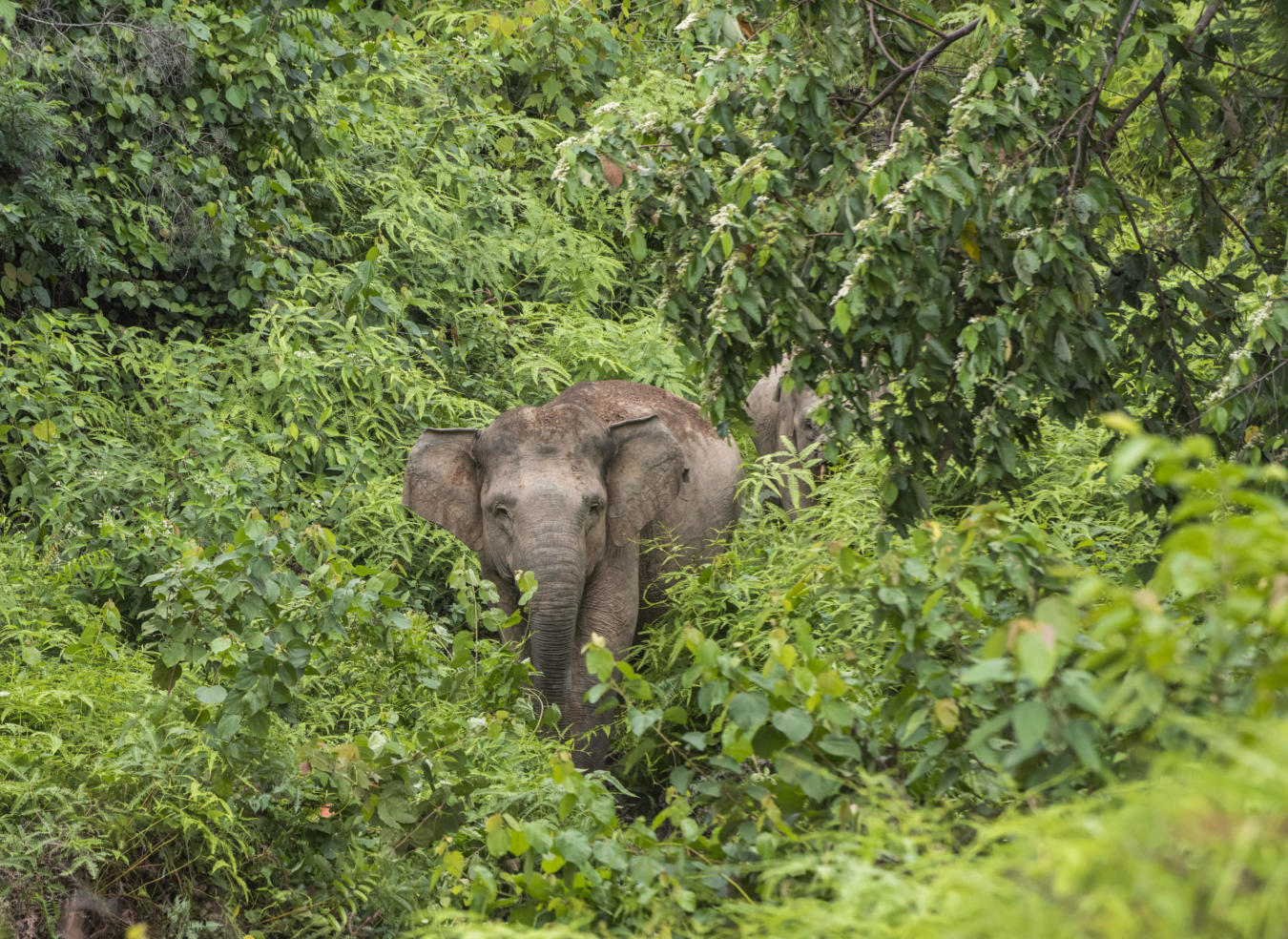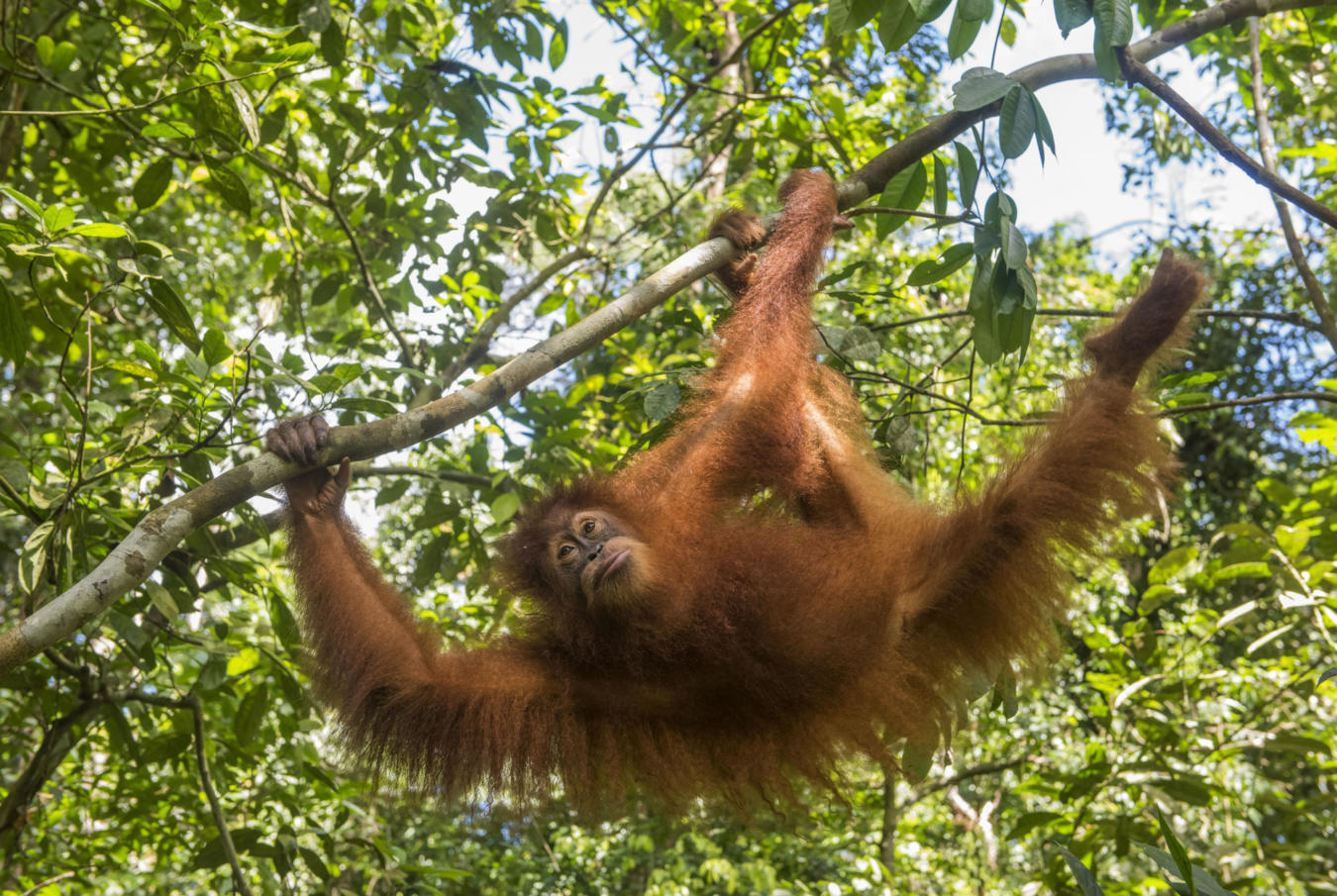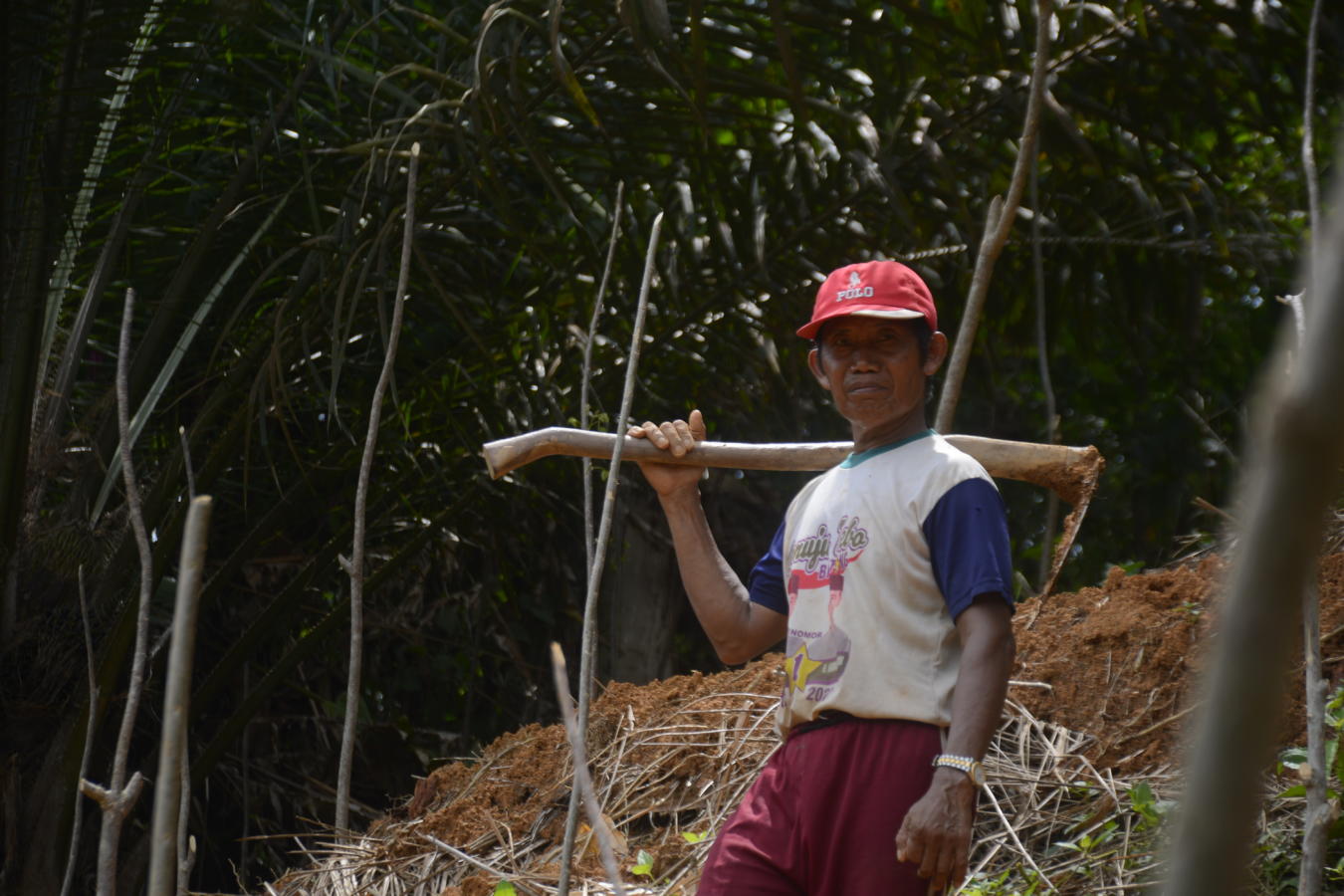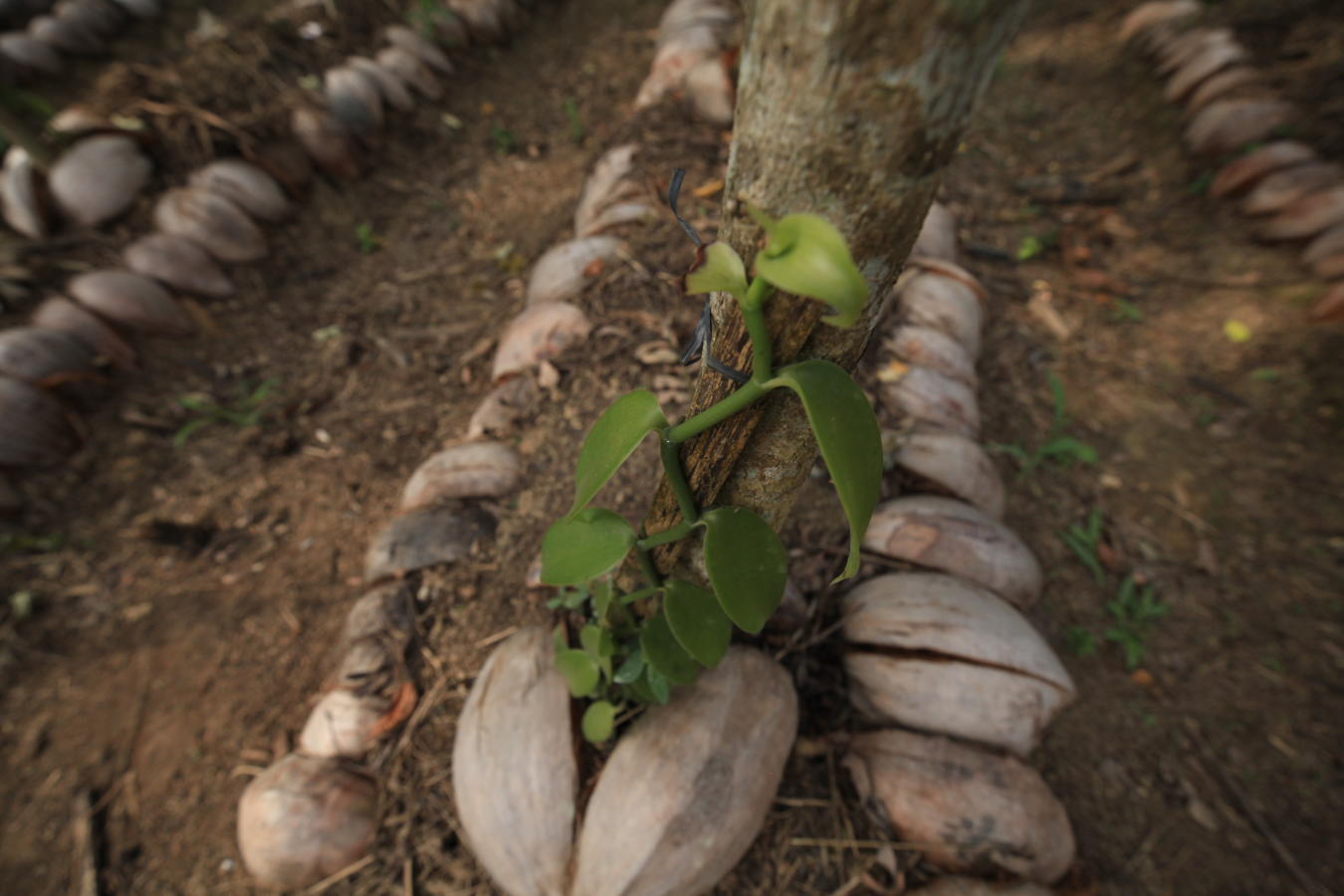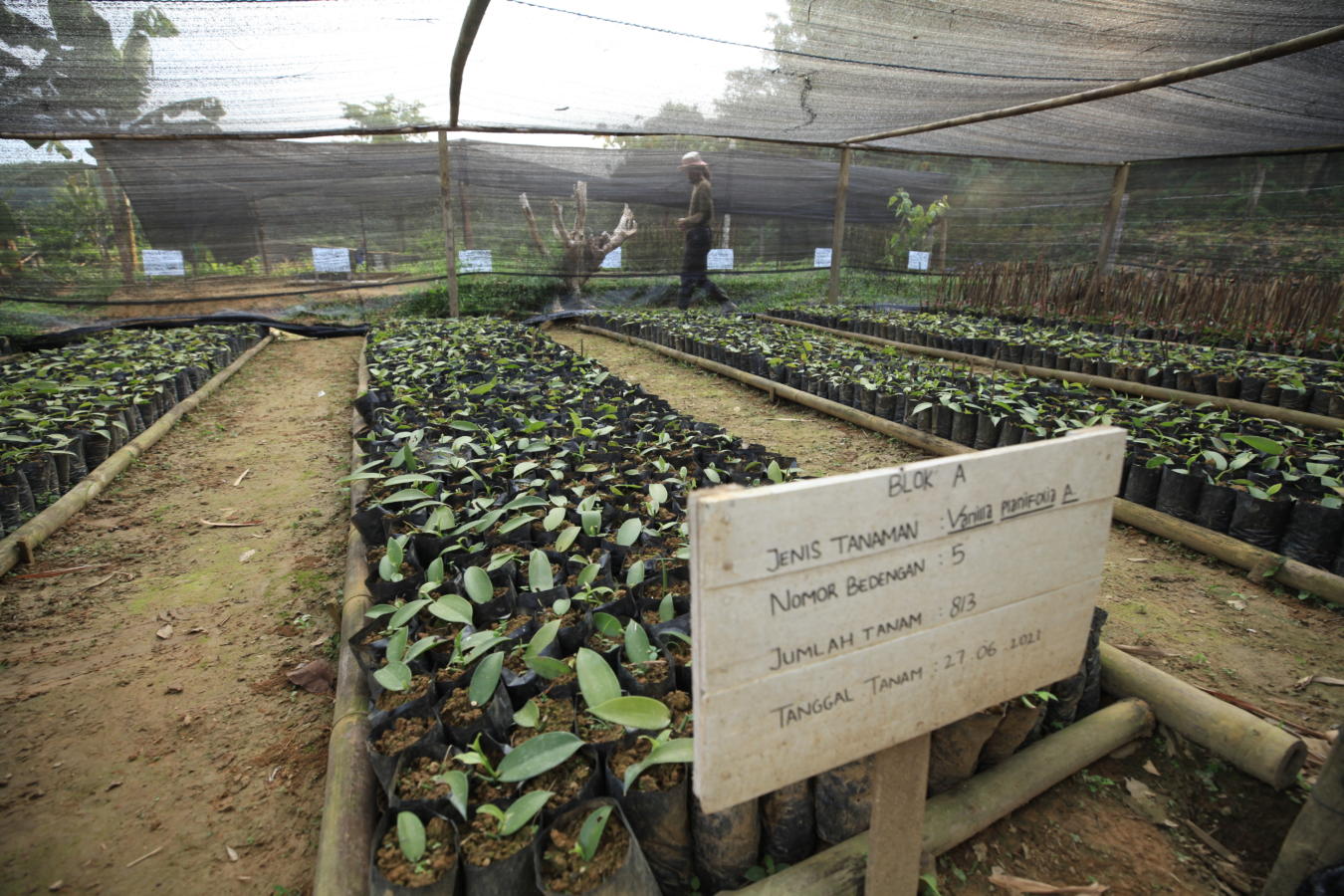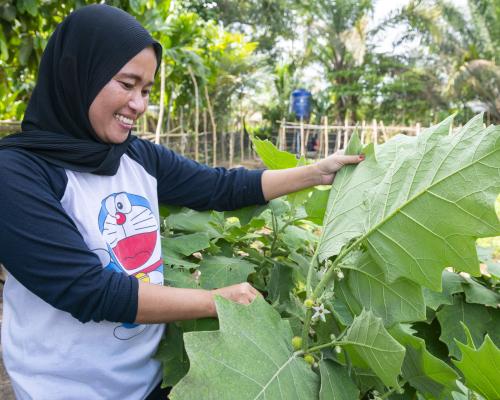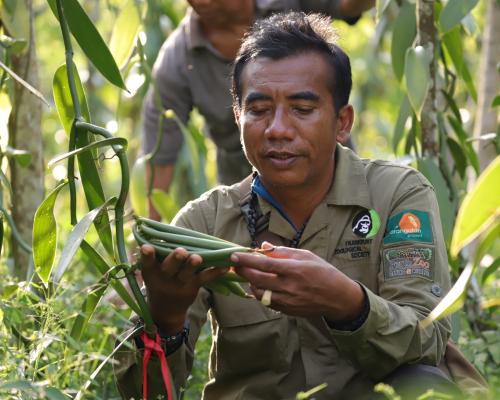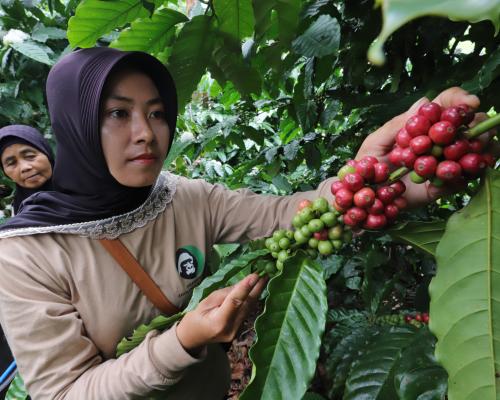Several farmers near Bukit Tiga Puluh National Park, Indonesia, are moving away from growing palm oil plantations. With help from FZS Indonesia they are beginning to grow ecologically friendly alternatives that also bring economic gains. It will take time, but the farmers are committed.
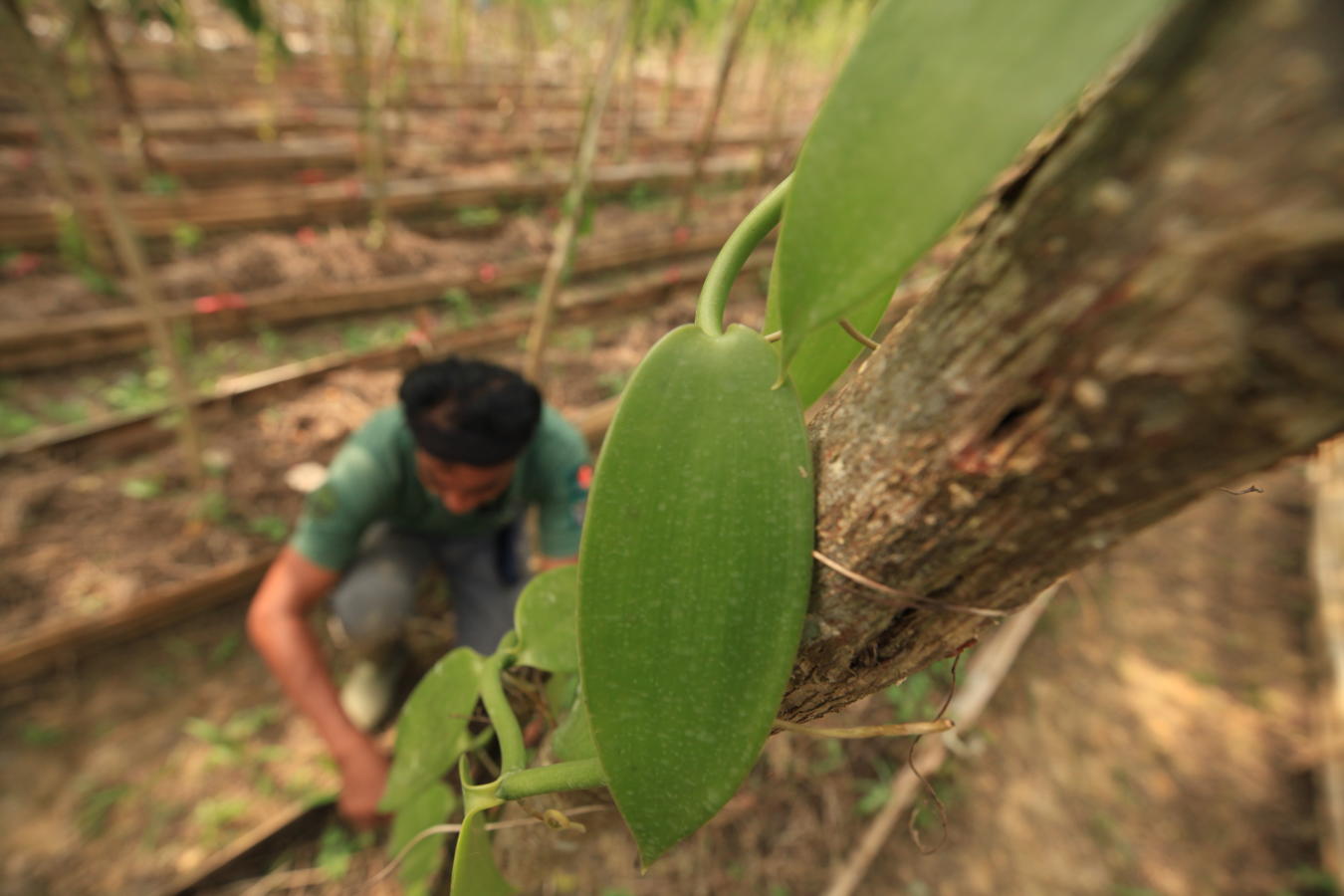
Replacing palm oil plantations in Indonesia
Paiman is a farmer. This morning he was a little busier than usual. He wants to accomplish his goal of planting 1,000 Gamal trees (Gliricidia sepium), a type of tree used to provide shade to crops, such as vanilla. These trees are being planted among the palm oil trees that Paiman is currently trying to phase out. “I plan for all my vanilla plants and trees to be planted by January 2022,” says Paiman.
Paiman is one of 17 farmers growing crops in the Delima area, located in Jambi Province, Indonesia which is on the outskirts of Bukit Tiga Puluh National Park. This Park is home to Sumatran tigers (Panthera tigris sumatrae), Sumatran elephants (Elephas maximus sumatrensis) and Sumatran orangutans (Pongo abelii). Sadly, habitats for all three endangered animals have decreased in the last three decades, due in large part to deforestation, land clearing, and land conversion into plantations.
“We never knew before that palm oil plantations are bad for the environment”, says Paiman.
Before the farmers started using the land, it had already been logged and abandoned. This kind of clearing has been happening in Indonesia for a long time. Between 1985 and 2007, 50% of Sumatra’s total forest area disappeared to deforestation. The farmers took it over and started planting oil palms, a profitable commodity.
There is a huge demand for palm oil. It is sought after worldwide for an immense number of products ranging from cosmetics, printer ink, detergents, to food products such as margarine.
However, there are other crops that can be grown which can bring the farmers an income, too. Crops that benefit rather than damage the environment. “For that reason, we are trying to offer an alternative solution by offering them the option to switch to agroforestry and polyculture systems,” said Dr. Peter Pratje, FZS Indonesia Program Leader.
Agroforestry essentially combines forest trees with agricultural crops. Whereas polyculture happens when various types of trees grow on one piece of land. The benefits of both include efficient use of land and improved ecological land functions such as water filtration.
Vanilla plants are vines, they need strong support that provides shade in order to grow properly. That’s why they are being grown with fast-growing gamal trees. This is one example of combining agroforestry and polyculture farming systems.
Growing agroforestry-friendly plants is expected to provide the farmers with a steady income because they can diversify the crops that they sell. So when one crop fails, they can fall back on another. Also, each plant is ready for harvest at different times of the year. This leads to a flowing income for farmers.
Although the farmers are on board now, it was not easy to begin this process. This was mainly because they were accustomed to growing oil palms, and didn’t know that better alternatives existed.
To start the conversation, the FZS Indonesia community development team went door to door, raising awareness of the program. To further gain their trust and to understand their concerns, a few FZS staff members also spent time living with the farmers.
These efforts were not in vain. “By the time my oil palms won’t be productive anymore in the next ten years, I hope that this agroforestry plantation will be ready to support us economically,” says Paiman.
Paiman was one of the farmers who was first convinced by the alternative agriculture program. He also even allowed his two hectares of land, which was initially allocated for oil palm plantations, to be used by FZS as a demonstration plot for the agroforestry nursery and vanilla seeding beds pilot. Here seeds are nurtured into seedlings or small plants, and then planted in the fields.
Not only that but now the farmers, with FZS, are also establishing a Forest Farmers Group. So far, the group consists of 17 farmers from the Delima area. The aim of the group is for the farmers to support one another and to empower each other in various ways, such as by learning how to bargain when selling or buying commodities, how to increase the productivity of their crops, and more. The group also subdivides the plants in the nurseries equitably for each farmer.
All 3,000 vanilla seeds that have been planted in the pilot plot in December 2020 have grown and flourished. Now, a year later, the nursery has over 24 thousand seeds. In addition, 50 thousand shoots of forest plants are growing in the nursery. This morning Paiman was planting some of those seedlings.
In the future, there are plans to expand the pilot plot and for it to be managed by Paiman’s community. The farmers also want to use the natural potential of the land to produce organic products, rather than using chemicals and fertilizers. Over time the FZS team hopes that the farmers can obtain economic benefits while protecting the environment at the same time.
FZS’s work with smallholder farmers in establishing nature-friendly land-use systems is co-financed by the Federal Republic of Germany within the framework of the International Climate Protection Initiative of the Federal Ministry for the Environment, Nature Conservation, and Nuclear Safety (BMU) through KfW Development Bank.






